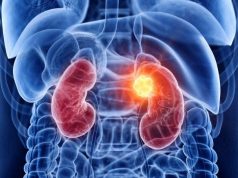B-cell repopulation occurs more often in African American versus White patients between six and 12 months after anti-CD20 infusion
THURSDAY, April 15, 2021 (HealthDay News) — For patients with multiple sclerosis (MS) and neuromyelitis optica spectrum disorder (NMOSD) receiving anti-CD20 treatment, B-cell repopulation occurs in more African American than White patients between six and 12 months after infusion, according to a study presented at the annual meeting of the American Academy of Neurology, held virtually from April 17 to 22.
Lucia Saidenberg, from the NYU Grossman School of Medicine in New York City, and colleagues retrospectively collected demographics, disease-related information, and anti-CD20 treatment history on patients with MS or NMOSD who had flow cytometry results after infusion of rituximab or ocrelizumab.
At a median of 6.8 months following anti-CD20 infusion, the researchers found that 29.8 percent of the 168 patients (134 with MS; 32 with NMOSD) had detectable B-cell repopulation, defined as any detectable number of CD19+ cells on flow cytometry. None of the patients had B-cell repopulation less than four months following anti-CD20 infusion; 23 and 61 percent of patients had B-cell repopulation between four and six months and between six and 12 months, respectively, following infusion. African American and White patients showed no differences in the frequency of B-cell repopulation at four to six months following infusion, while at six to 12 months following infusion, the frequency of B-cell repopulation was significantly higher among African Americans versus Whites (76.2 versus 33.3 percent).
“Our findings raise the question of whether the same therapy dose may be equally effective for all people,” a coauthor said in a statement.
Copyright © 2021 HealthDay. All rights reserved.








